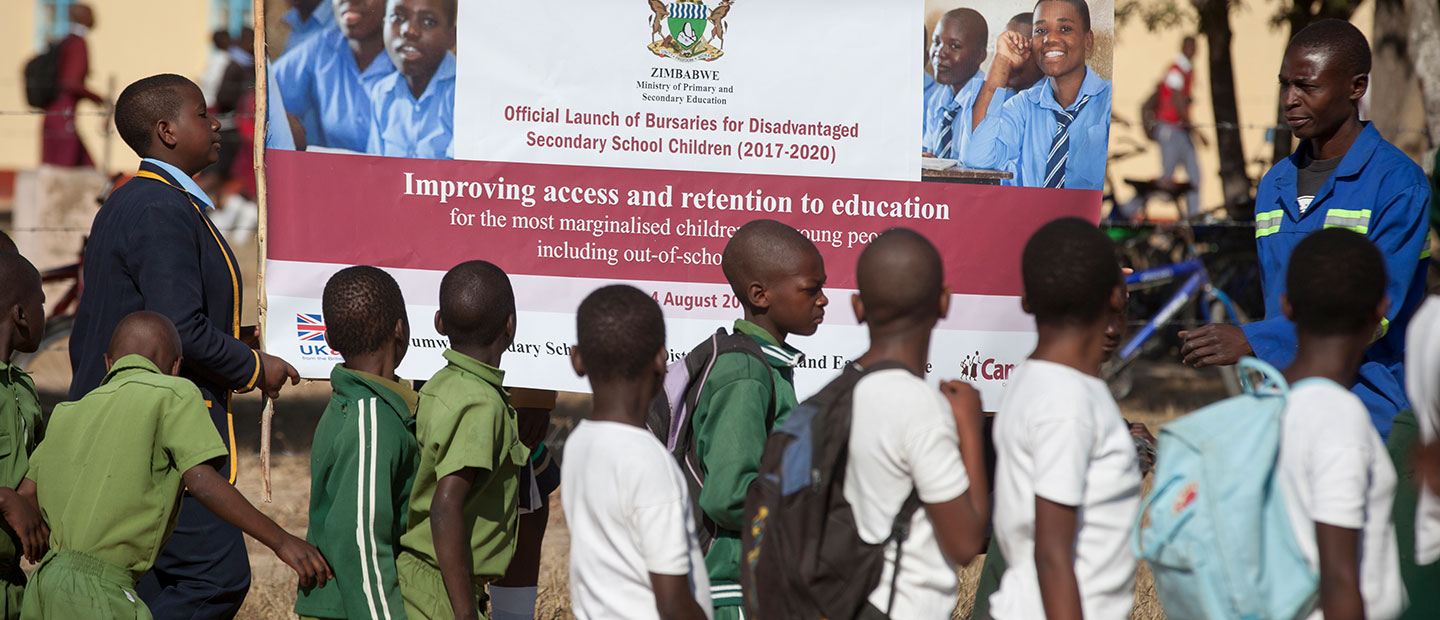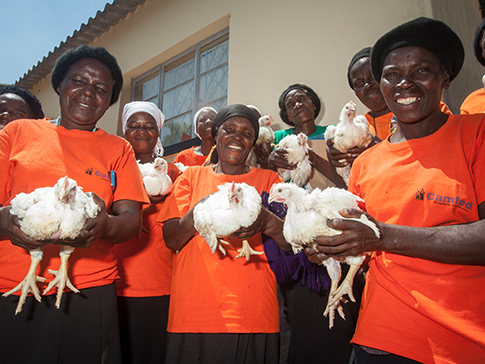
Celebrating charity with built-in sustainability

This International Day of Charity, we celebrate the philanthropy that happens in our communities every day — where time, love and labor multiply the financial contributions we rally to ensure that vulnerable children go to school, succeed and lead.
Mothers who prepare school meals, and CAMFED alumnae who use business profits to support more children, join hands with teachers, students and officials to ensure that the spark ignited through education leads to a sustainable movement, empowering women and eradicating poverty. Just weeks ago they joined CAMFED Zimbabwe to launch bursaries in support of 23,384 disadvantaged secondary school children in partnership with the Ministry for Primary and Secondary Education, made possible through a grant by the UK government.
The years ahead are bright and we are honored to be working with you and look forward to achieving only the best we collectively can for each child.
Faith Nkala, National Director, CAMFED Zimbabwe
The Minister for Primary and Secondary Education, Dr Lazarus Dakora, joined the Head of the UK Department for International Development (DFID) Zimbabwe and South Africa, Annabel Gerry, and CAMFED Zimbabwe’s National Director, Faith Nkala, to address the audience at Nunwa Secondary School in Wedza. Dr. Lazarus emphasized that disadvantaged children “have not committed any crime and are not responsible for their own welfare. These kids are born to us as a blessing not as curses… They should be protected and if we dare exclude them from school we are cursed.”
Our goal is to come together under Ubuntu, the Southern African humanist philosophy which says that we share a bond that connects all humanity, and we need to look after each other.
Angeline Murimirwa, CAMFED Regional Executive Director
Those gathered heard the stories of students and CAMA (CAMFED Association) alumnae, and saw first hand the transformative power of education. CAMA member Linda Bhebe told of selling fudge to keep herself in primary school, but having no way of meeting secondary school costs, which were 25 times higher. Selected by her community for a CAMFED bursary, she avoided the perils of child marriage and early pregnancy, and excelled: By 13 Linda was elected junior parliamentarian for her constituency; then as the Head Girl. Today she is a student at Ashesi University in Ghana.
CAMA member Progress runs a successful welding business, a role model for girls in her community. She proudly displayed her work to guests at the launch event.
Students demonstrated their practical skills and knowledge, while Mother Support Groups represented the immense inputs provided by communities to ensure that vulnerable children received the food and emotional support to flourish at school.

The Matsine Mother Support Group in Zimbabwe plays a vital role in keeping vulnerable children in school, rearing chickens to raise funds for the school meal program.
The work of Mother Support Groups in creating sustainable, home-grown school meal programs — one of the great success stories of CAMFED Zimbabwe’s community-led approach to girls’ education — is the subject of Angeline Murimirwa’s latest blog:
Five lessons for harvesting success through home-grown school meal programs
